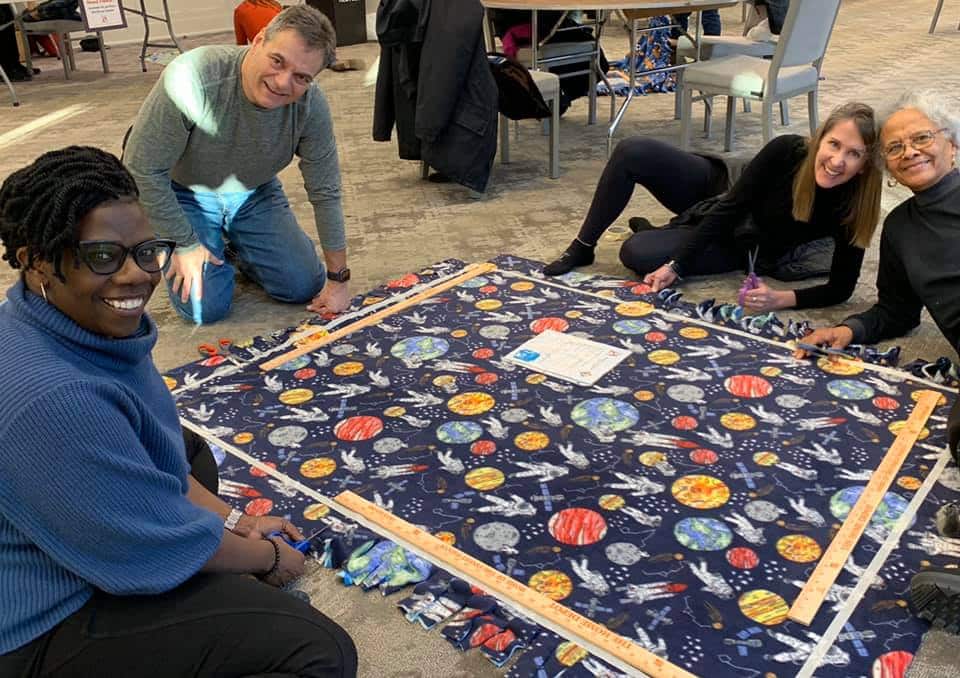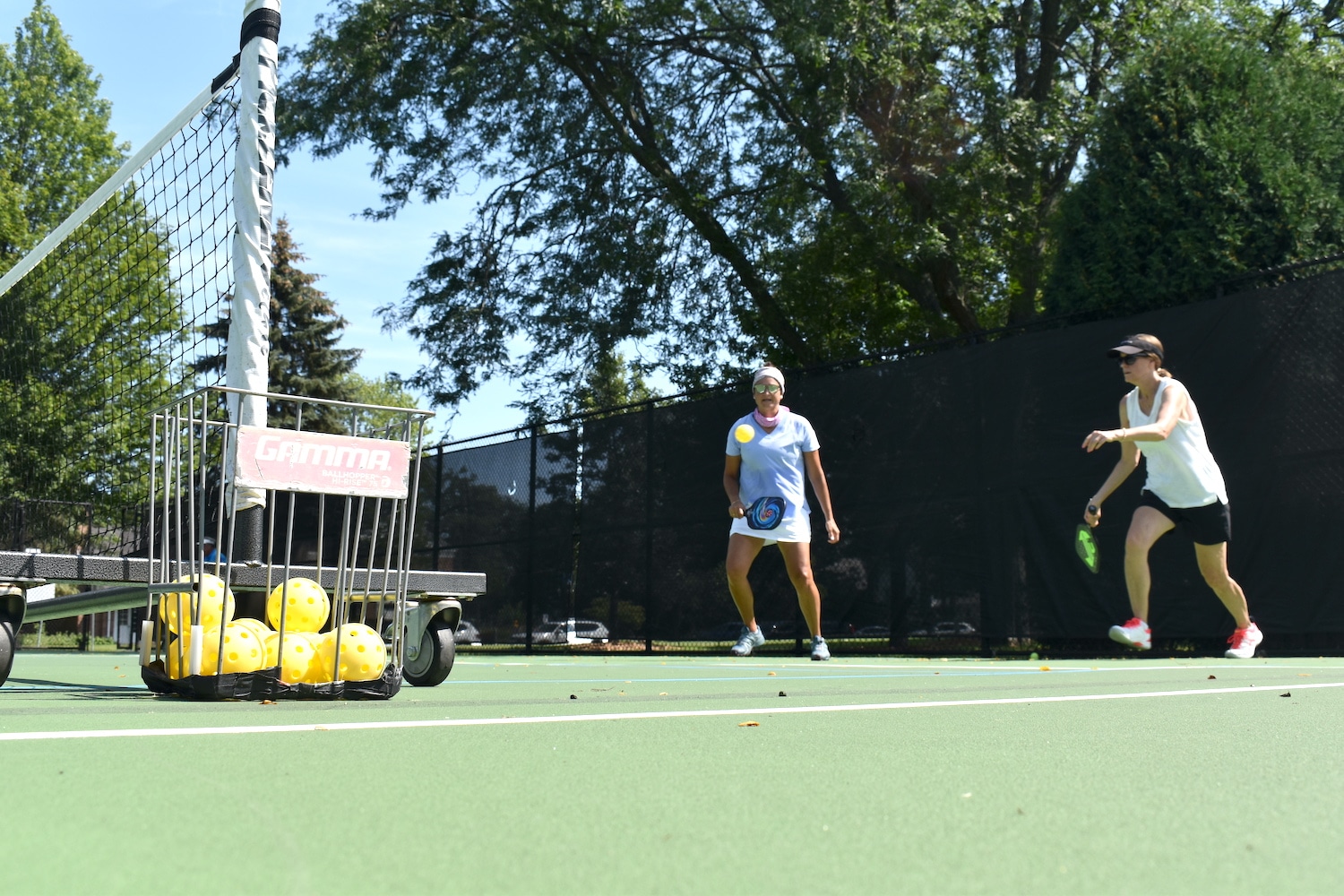
Great Minds ‘Dink’ Alike: Pickleball demand inspires more local courts, programs
It was summertime in 1965 on Bainbridge Island, just a ferry ride from Seattle, when three fathers sought to find a new way to entertain their children for the remainder of the summer.
Joel Pritchard, a politician, and Bill Bell, a businessman, were neighbors of Barney McCallum, a handyman, and together they came up with a four-player sport on a badminton-size court with a net set to 34 inches at the center.
Using plastic balls they had lying around and wooden paddles bandsaw-ed by McCallum, the three men refined the sport that is now uniting North Shore communities during the COVID-19 pandemic.
Pickleball.
Pickleball has nothing to do with brining cucumbers and everything to do with family. The Pritchards’ dog, Pickles, would chase the plastic ball and run off with it, and as the game progressed, an official name was needed. Pickleball was it.
The game is played similar to tennis or badminton with one side trying to score a point on the other. Also just like those sports, participants can play singles (one on one) or doubles (two on two) in a race to 11, 15 or 21 points.
The ball is served diagonally from the right-hand square of the court, but unlike tennis, points in pickleball can only be scored by the side that serves.
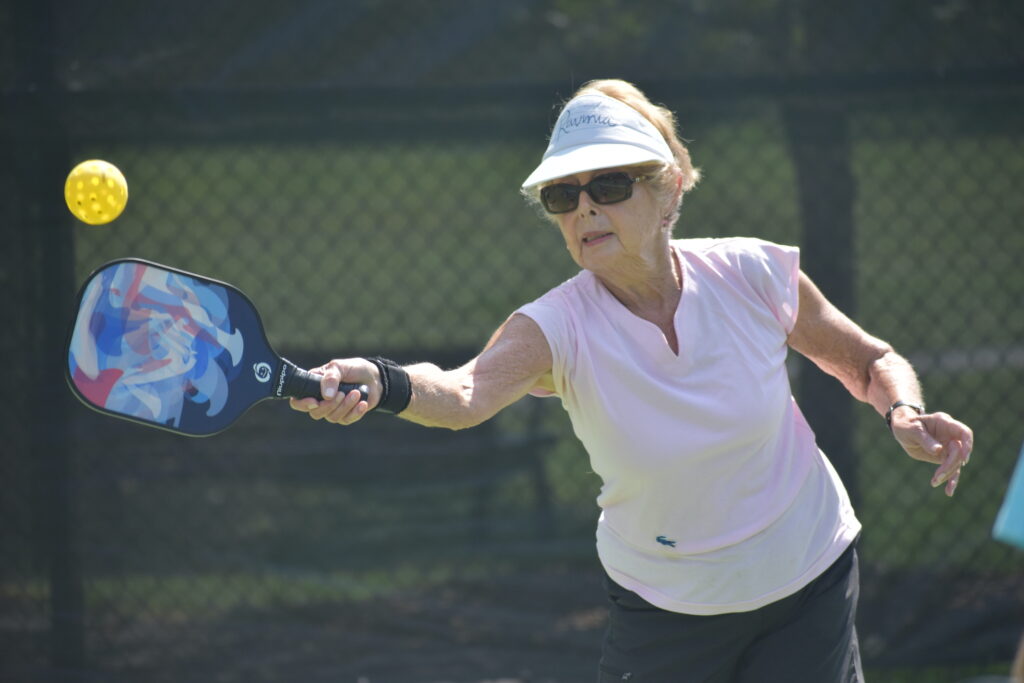
A serve must bounce before being played, and the return must also bounce before being played. Playing the ball back and forth is often called “dinking,” because of the sound of the plastic hitting the wooden paddle.
There is a no-volley zone within 7 feet of the net. Players cannot hit the ball out of the air within the zone and a serve cannot land in that zone, which is also known as the kitchen.
U.S. pickleball participation increased by 21.3 percent from 2019 to 2020, and there are an estimated 4.2 million pickleball players in the U.S., according to the USA Pickleball Association, the national governing body for the sport.
Across the North Shore, pickleball has taken off primarily through word of mouth.
Deb and Mitchell Cohen have lived in Wilmette since 1980 and only became familiar with pickleball a few years ago on a trip to Sanibel, Florida, where pickleball was the dominant activity.
“It started out as something for the older crowd, people who were getting injured doing other things like tennis or running or paddle,” Deb told The Record. “And it has grown, and now you see a lot of younger, 20-somethings [and] all-ages picking up pickle, and it’s just growing and growing.”
Not only do the Cohens like pickleball for the fun of it, but also because it’s accessible to all, regardless of athletic abilities.
“I still play tennis, but I prefer pickle,” Deb said.
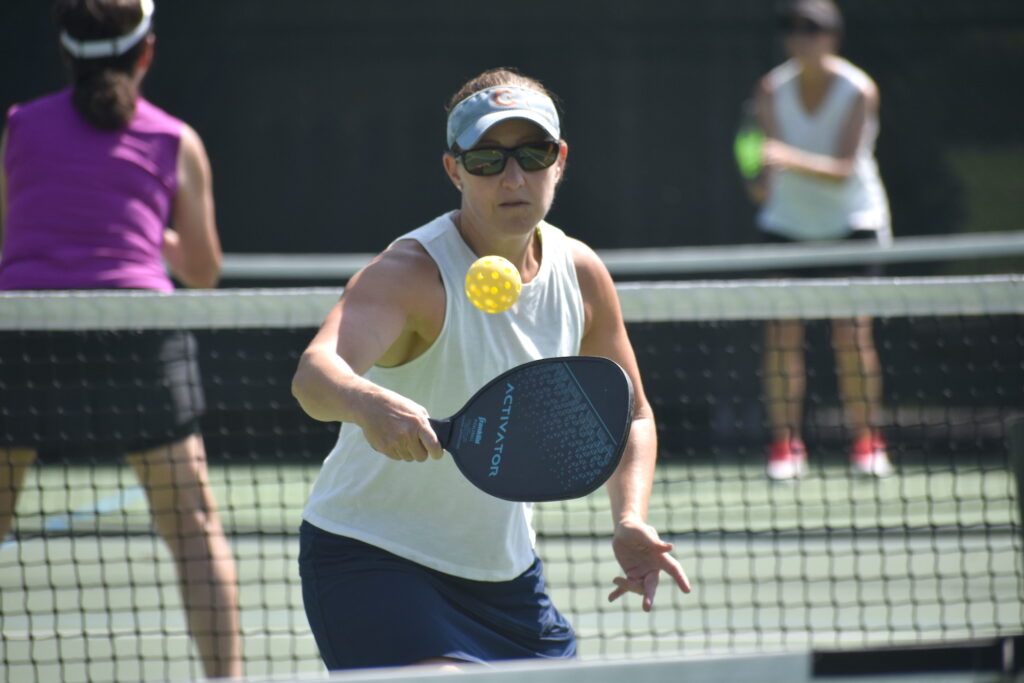
But with an increasing number of players, North Shore residents are itching for more places to play. Tennis and platform tennis are uber popular across the area. The courts must be altered with different lines to account for pickleball-court dimensions.
For example, the Glencoe Park District had the tennis courts at Watts Park lined for pickleball, and the Winnetka Park District did the same with their platform tennis courts.
The A.C. Nielsen Tennis Center outdoor courts are being resurfaced with two pickleball courts, according to John Peterson, Winnetka Park District executive director, but court availability is not guaranteed.
Winnetka resident Lisa Snabes told The Record she isn’t letting lack of court space, or weather conditions, stop her from playing with her two pickleball groups.
“We were shoveling off the courts at Northfield. We were so desperate to play,” Snabes said. “That was in February of this year. The guy would bring out the salt and put it on the court so we could actually be outside and play.”
Snabes started playing pickleball on a friend’s home tennis court in 2020 during the pandemic as a way to get fresh air, exercise and socialize safely with friends.
Eventually a friend of Snabes’ painted official pickleball lines on her tennis court, and now the group gets together in the friend’s backyard for pickleball, cocktails and dinner on a regular basis.
The demand for space to play pickleball has not gone unnoticed by local government officials, and Wilmette believes they can get residents on the court — and out of the kitchen — as the suburb is in the early stages of program development.
Wilmette Park Board President Mike Murdock believes the sport can be as equally successful as another recent addition in Wilmette. The district constructed a multi-court platform-tennis complex at West Park in 2013.
“I think the case for pickleball is even more obvious today,” Murdock wrote to The Record. “As part of our vetting process, we have received positive feedback from residents that they would support a pickleball facility in our community.”
In Kenilworth, residents can expect to see new tennis and pickleball courts soon. The Kenilworth Park Board approved a conceptual renovation plan for Townley Field that includes two tennis/pickleball courts, said John Kiwala, the district’s executive director.
To the north, pickleballers can play at Watts and Shelton parks in Glencoe, and reservations can be made online. The Glencoe Park District also runs beginner and intermediate pickleball workshops with local pro Carl Rosenthal.
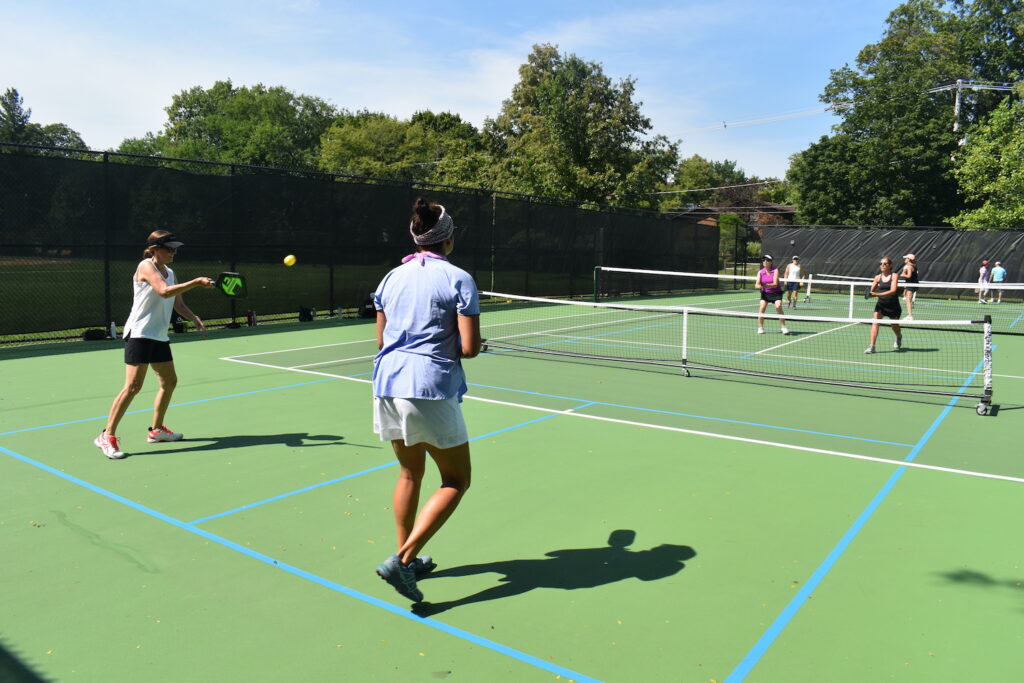
And in Northfield, there are six outdoor pickleball courts available.
“We are currently pleased with the six we have and the usage of those courts,” said Donald Klein, the Northfield Park Board president. “In the past winter months, we have had indoor pickleball on Friday nights and Saturday mornings. We will address that activity again this year as the season approaches.”
As officials work to add pickleball courts and equipment to keep up with demand, they are finding themselves drawn to the court as well.
“I personally have taken lessons and played pickleball with my wife and friends,” Klein told The Record. “We really enjoy the sport. I believe it is a sport that can be played and enjoyed by all ages.”
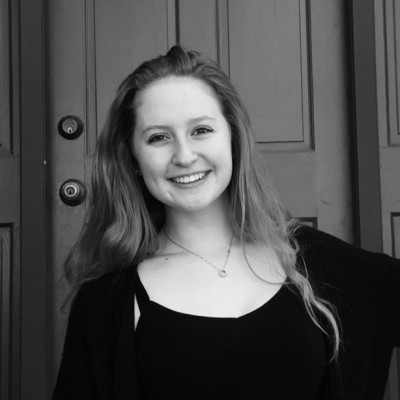
Alayne Trinko
Alayne Trinko is an editorial intern who assists the editor-in-chief in reporting hyperlocal news, developing engaging multimedia, and building community trust. Alayne was a staff writer and Focus section editor for The DePaulia, DePaul University’s student-run newspaper. Alayne will be a junior studying journalism this fall and hopes to study abroad to conduct social justice reporting on women’s reproductive health issues in Africa or India in summer 2022. Follow her on Twitter @AlayneTrinko.


